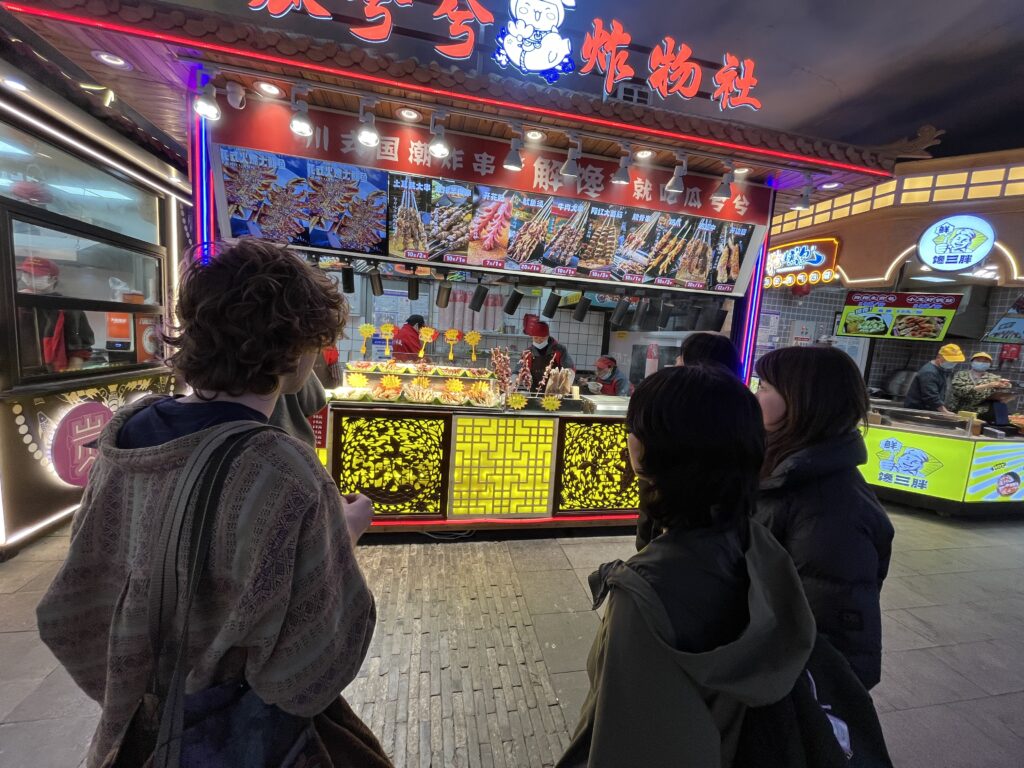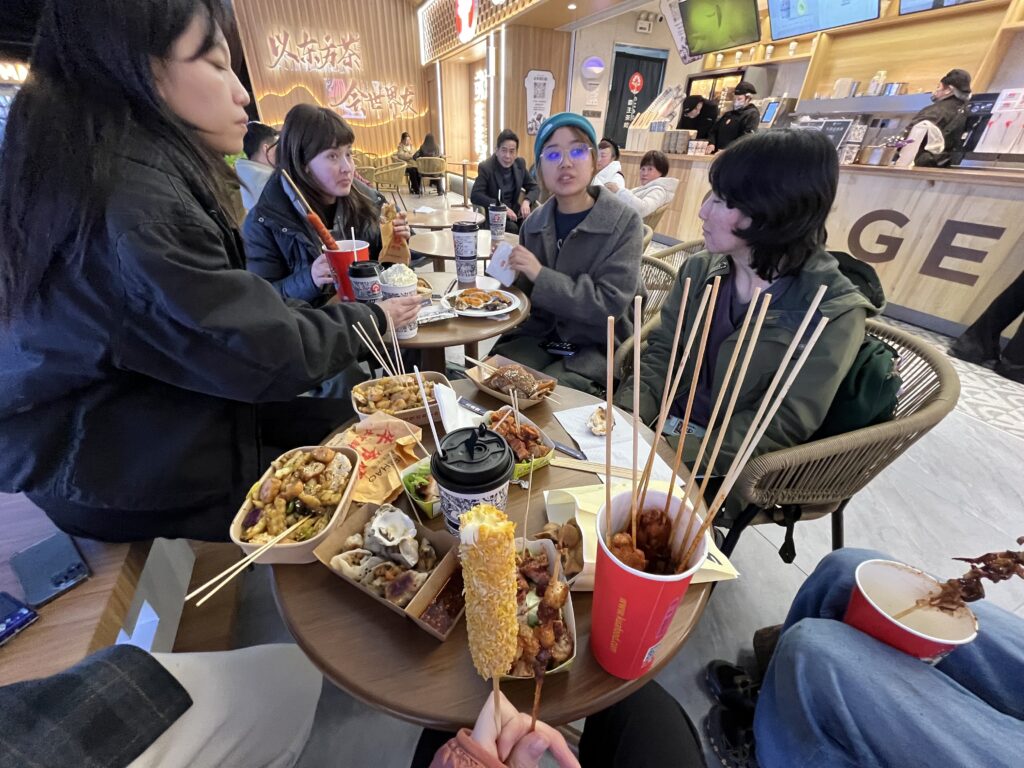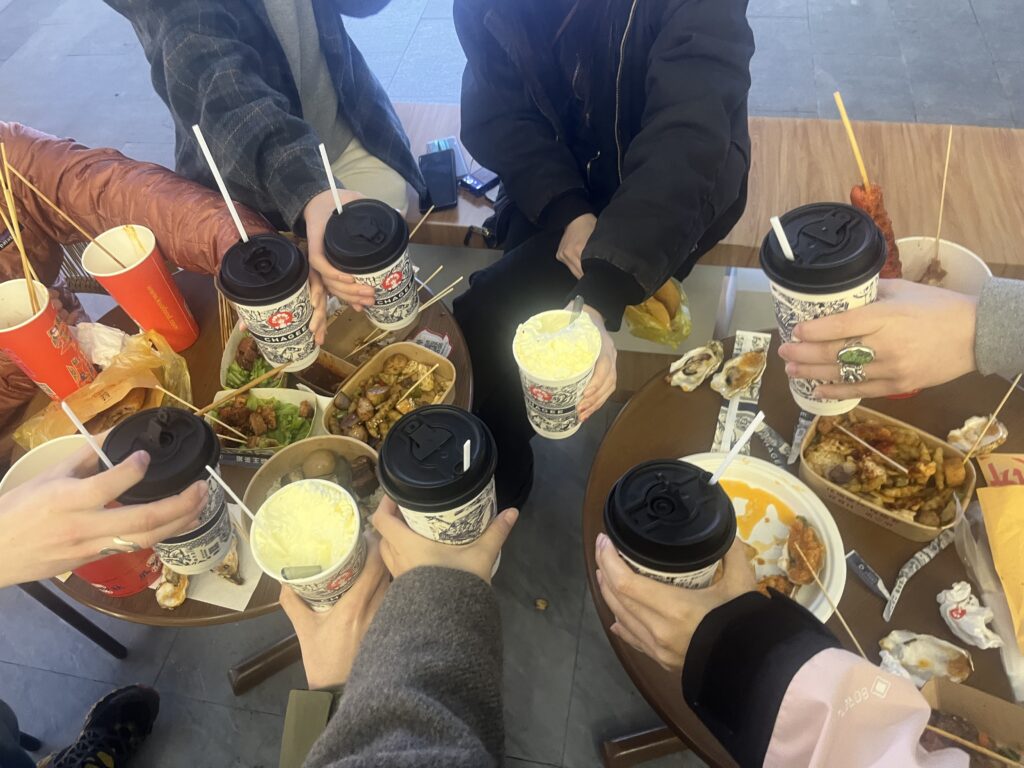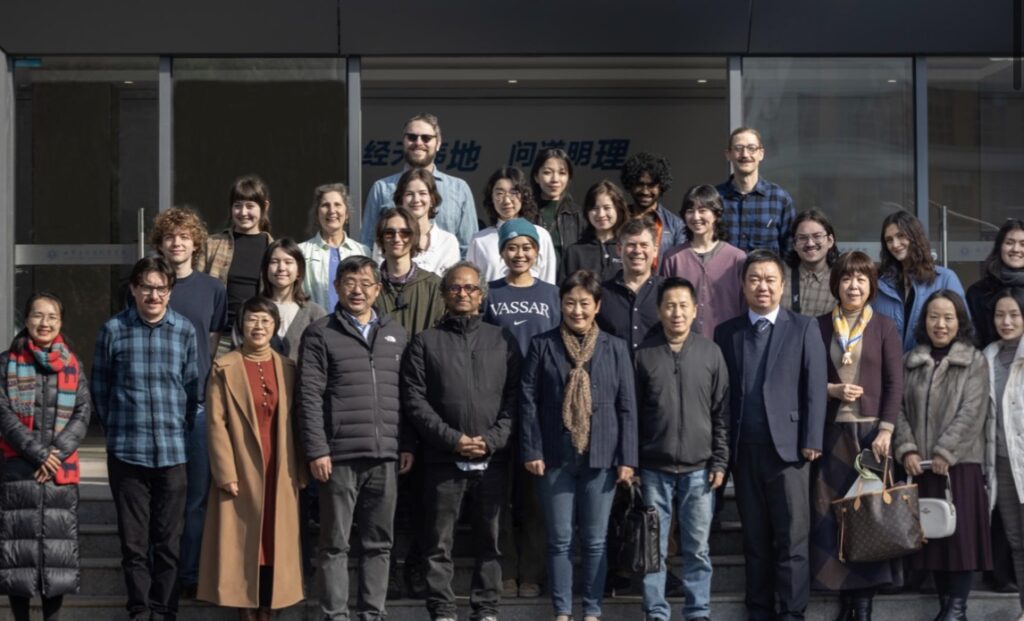Liana Tortora and Malia Weiss
We started off our morning in Wuhan bright and early. Many people tried the local breakfast specialty: hot and dry noodles. The hotel chefs made these noodles on the spot and customized each order!
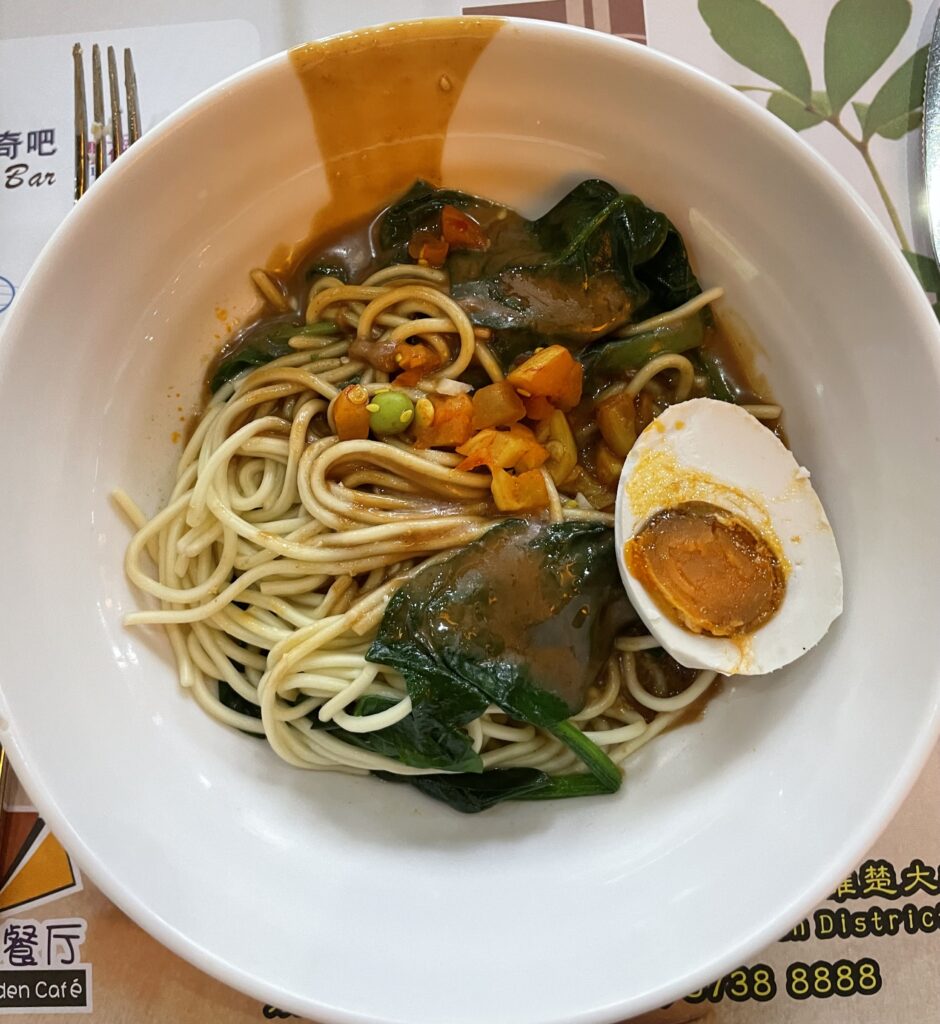
After breakfast, we met up with two university students–Angel and Jeanius–who showed us around Central China Normal University. Angel and Jeanius were kind and welcoming; they were generous in answering our many questions and were curious about our lives, too. The CCNU grounds cover a very large area, and we learned that it was gated only after COVID. Before then, anyone could walk onto campus without a student ID. The buildings themselves were a beautiful mixture of old and new; some were only constructed in the past few months. It was interesting to see the different residential buildings and learn that students’ parents also had separate housing available.
In our welcome lecture with several professors of biological sciences and urban and environmental sciences, we learned that CCNU is a “normal” university, which means it is especially designed to train students to become teachers and leaders. Professor Xie informed us about the aquatic situation of Wuhan, including the history of the city’s utilization of the Han and Yangtze rivers, its recent recreational use of these rivers, and challenges the city will face in the future regarding its relationship with the rivers.
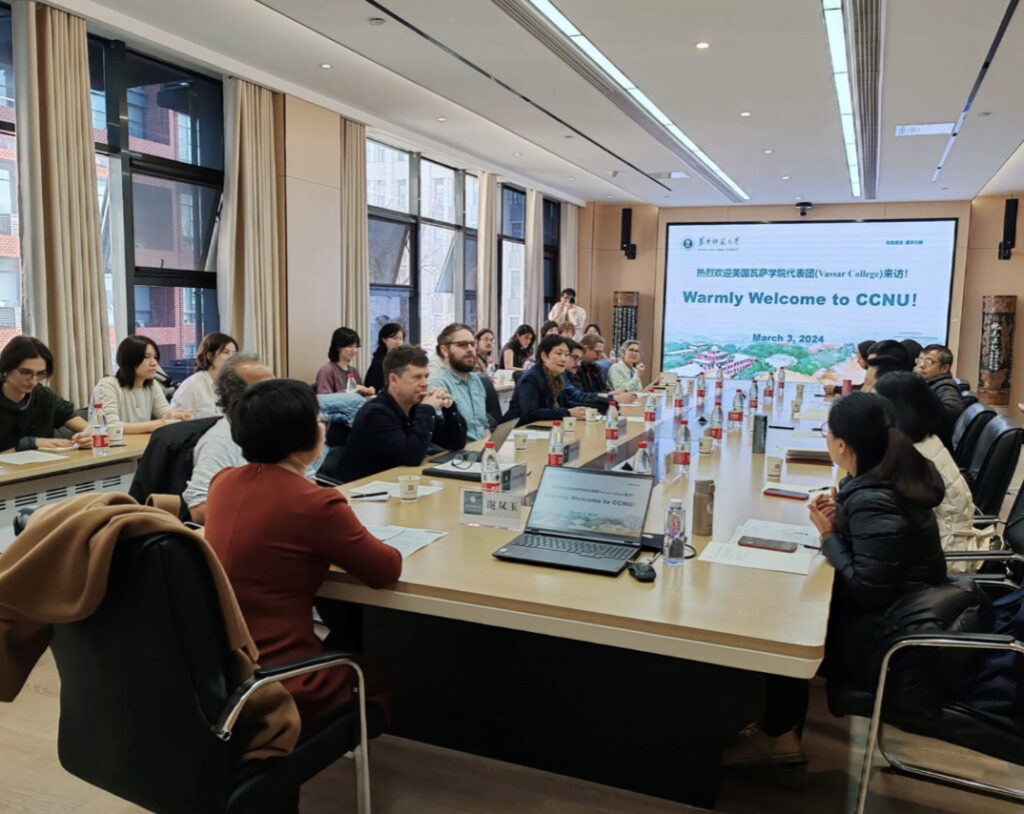
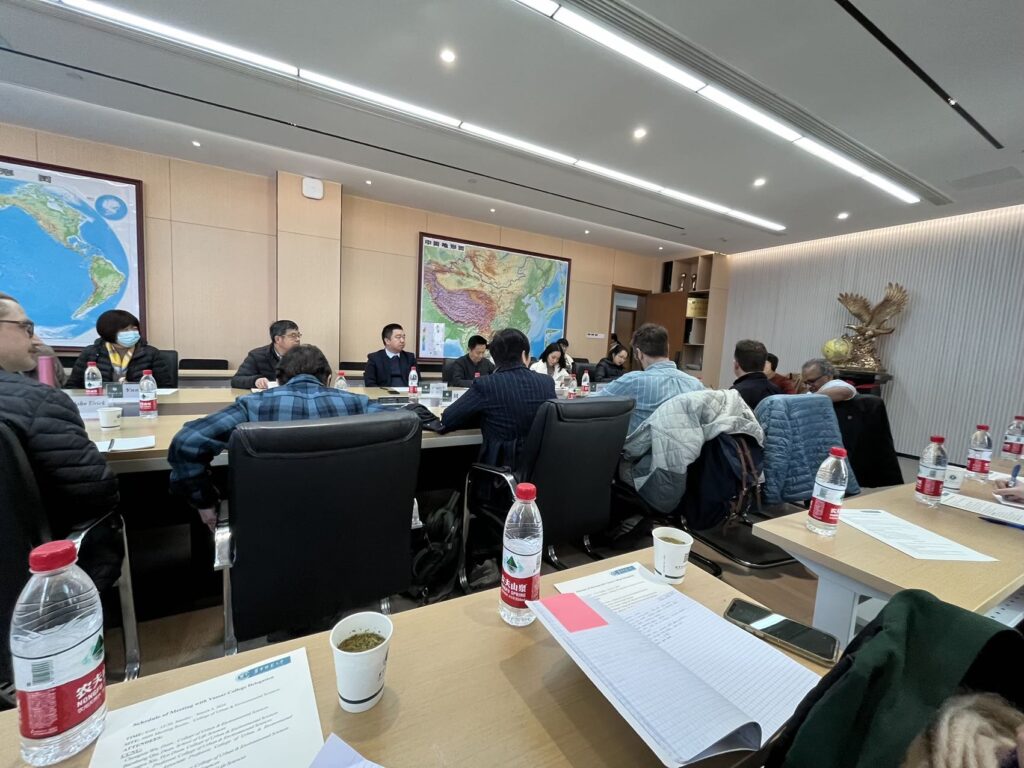
On our way to the biological museum, we walked through cherry blossom trees, a student organization/community service fair, and a courtyard of parents and young children painting. We began to get a better sense of the vastness of CCNU’s campus and the breadth of the community it serves. At the museum, we learned about the kinds of bug, fish, plant, and animal species that live in Hubei Province.
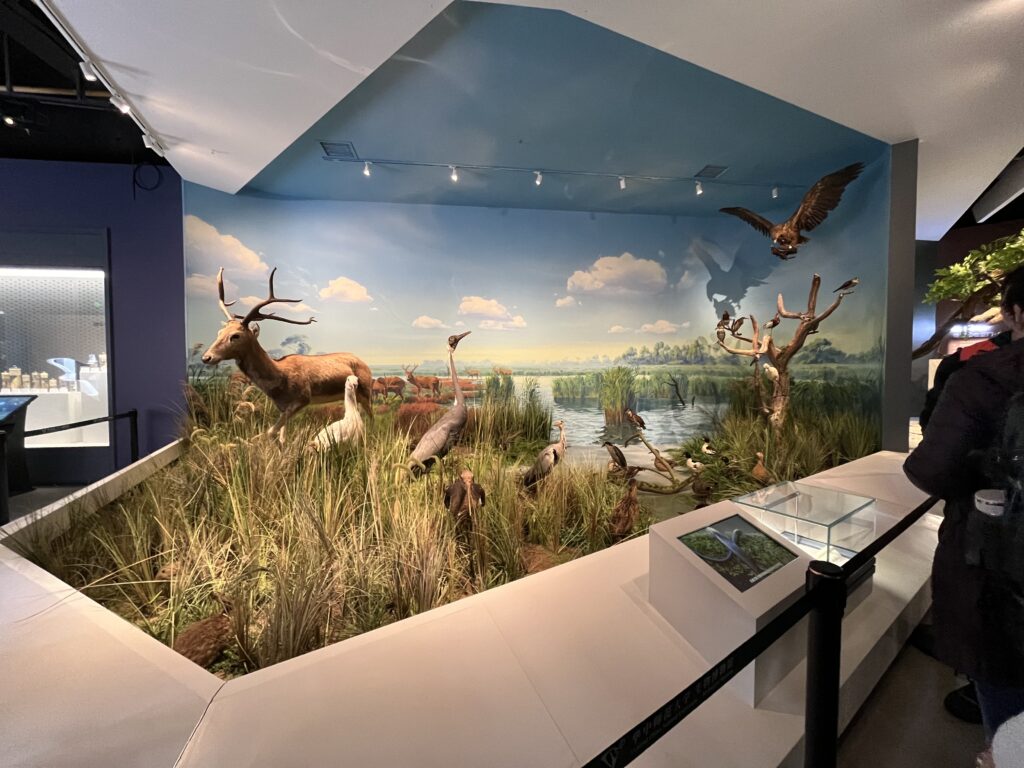
We then attended a lecture by Professor Xiong. She explained Wuhan’s situation as the “city of a hundred lakes” and discussed its dealings with urban flooding through strategies such as the “sponge city” model. Professor Xiong also spoke about Wuhan’s water quality, management, and testing systems.
At lunch, professors and students sat together. We were able to ask the CCNU professors and deans many questions and learn about the school from their perspective as educators. We also watched the chef prepare Pecking Duck right in front of us!
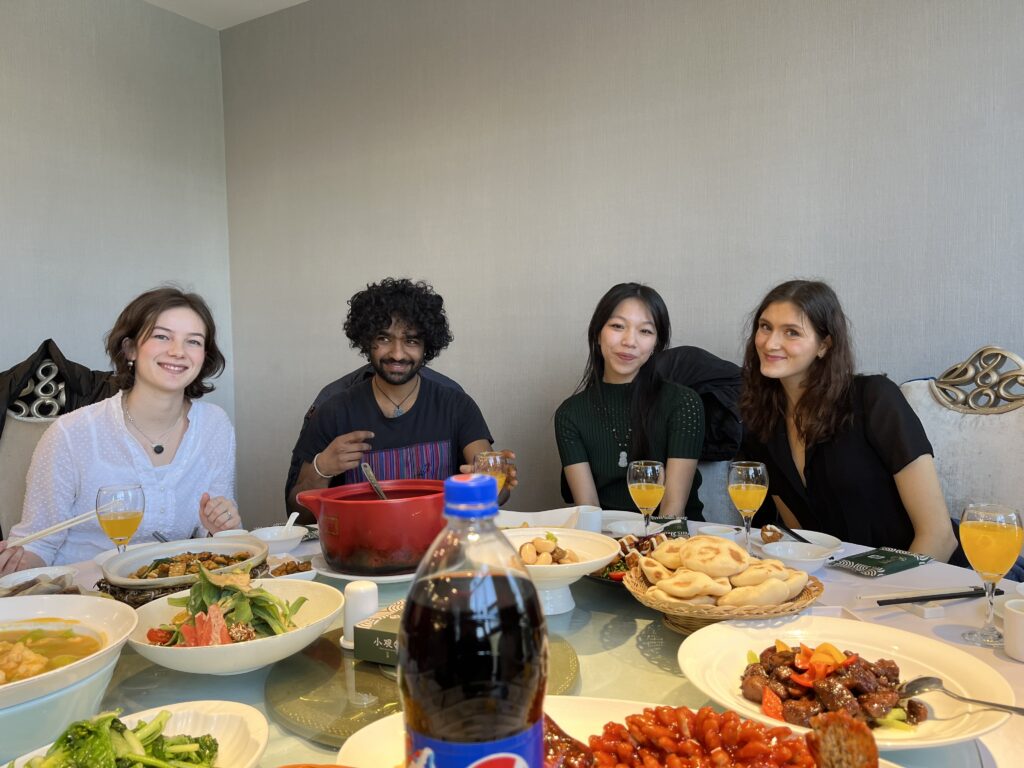
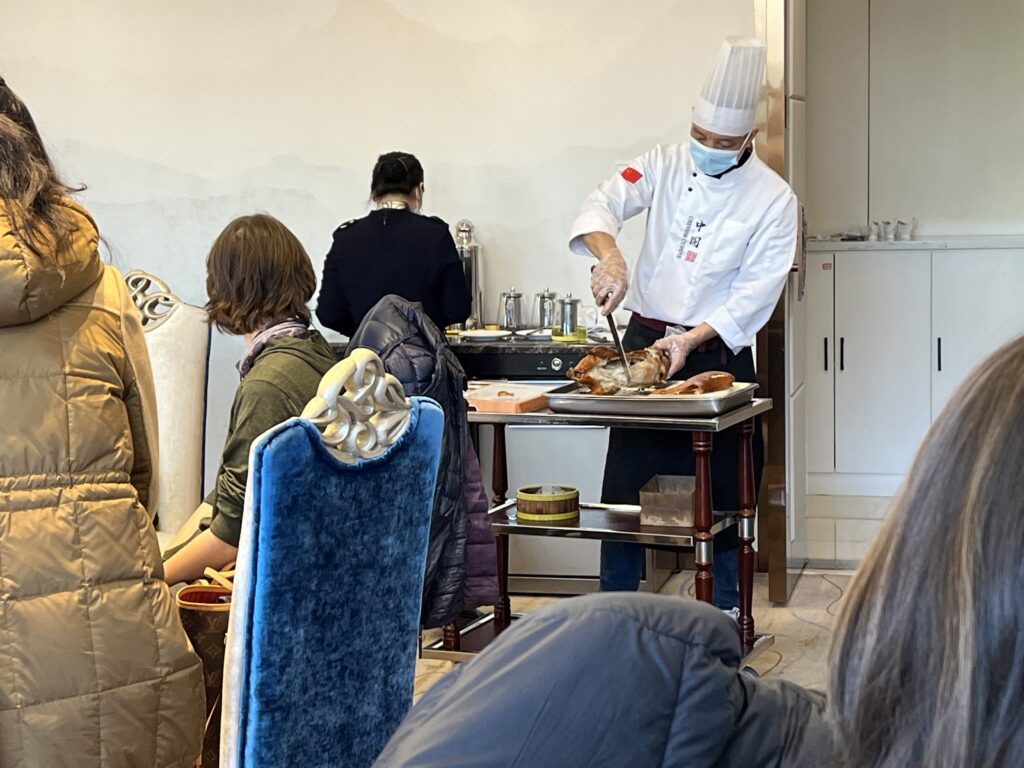
The highlight of the day came after lunch, when we met up with several volunteer students from CCNU and explored East Lake together, one of the largest urban lakes in China. We split up into three groups of Vassar and CCNU students and went our separate ways. One group stayed at the lake to watch the city light show, while another group found a street to do some shopping. Our group was accompanied by students Eden, Jina, Sarah, Miriam, and Hoshi.
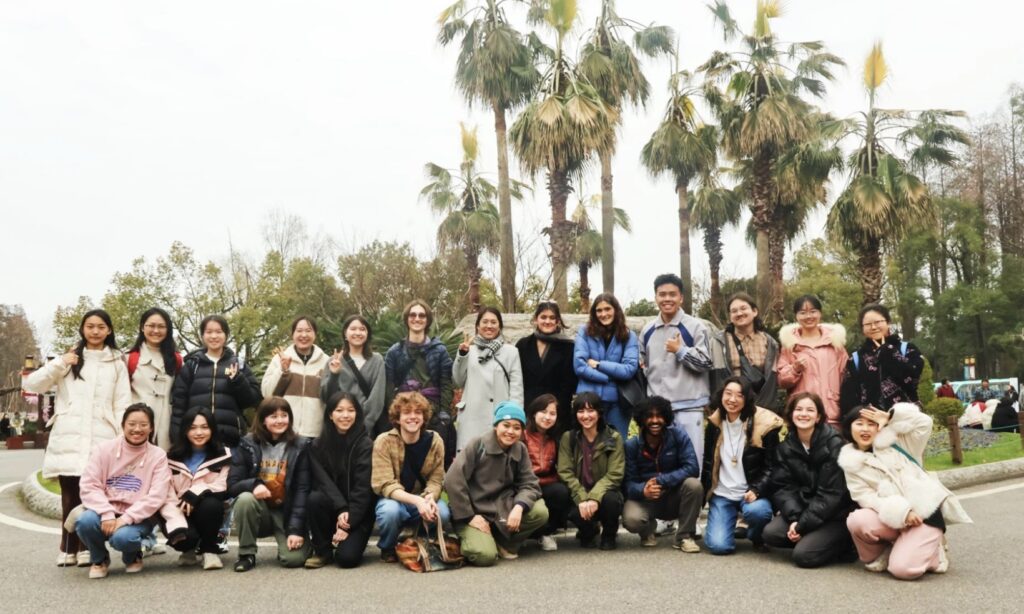
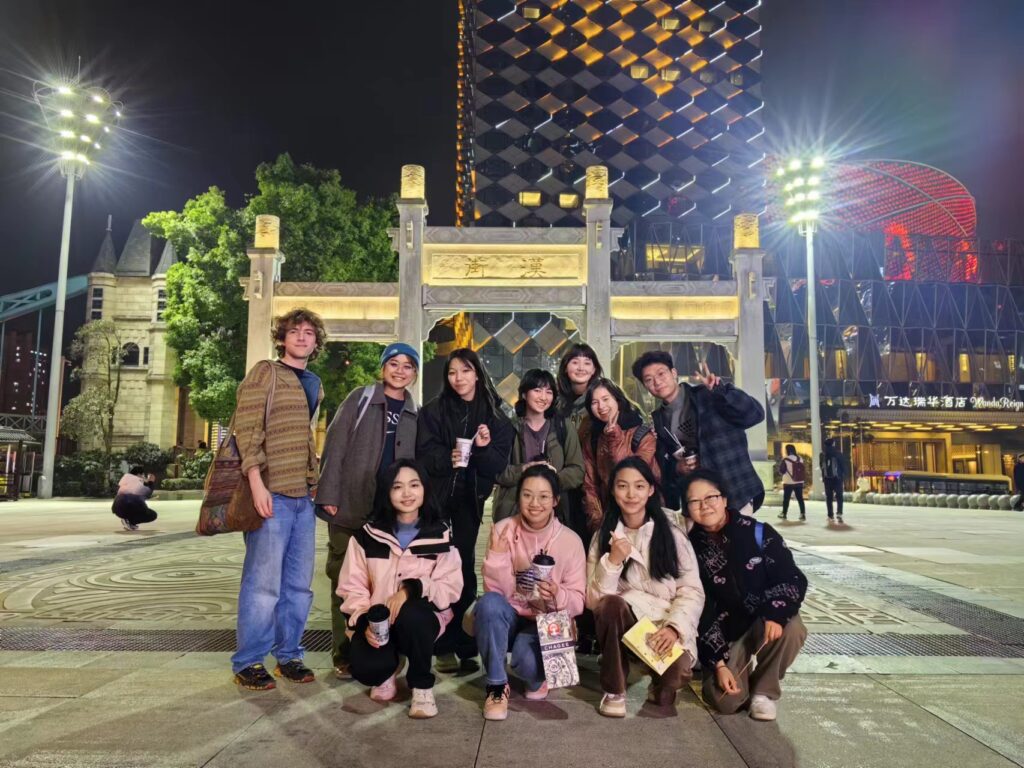
We first walked along the lake and decided to take a boat to the other side to ride the cable cars! We stood on the top of the boat and were able to see Wuhan’s impressive buildings and even some fish! As we rode the cable cars, we saw the beautiful nature surrounding the lake from above. Many of the trees had left broken branches along the paths. We learned from our CCNU friends that just a week ago there was a very damaging frozen rain and a snow storm that impacted many of the trees and farming infrastructure in the area.
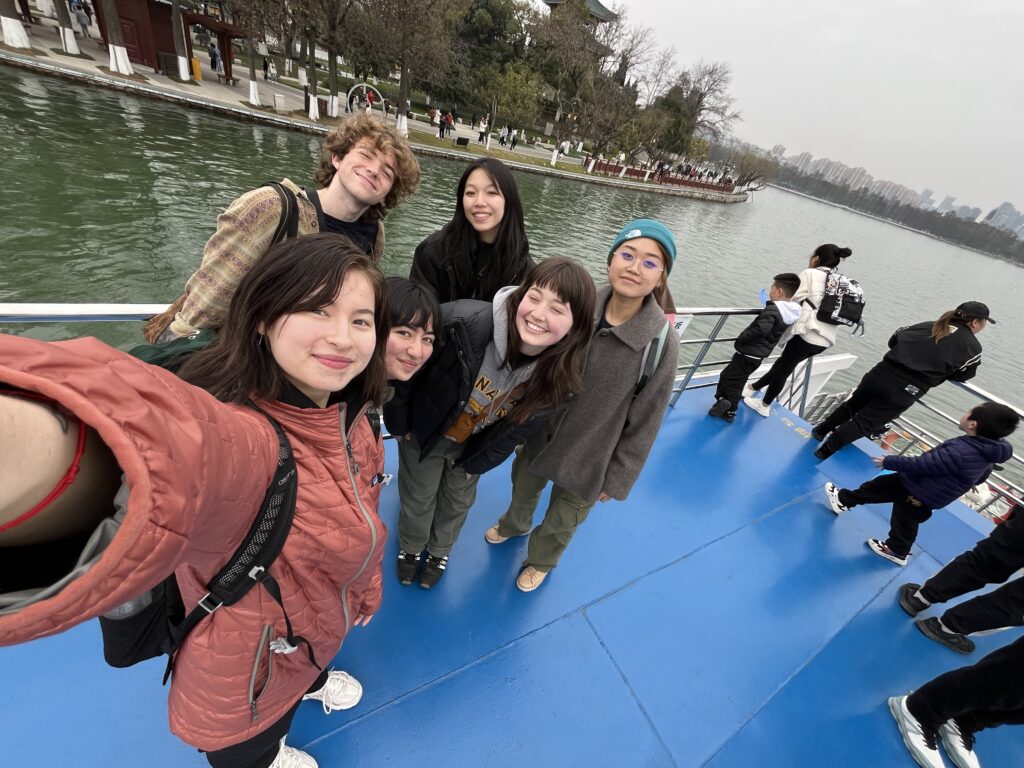
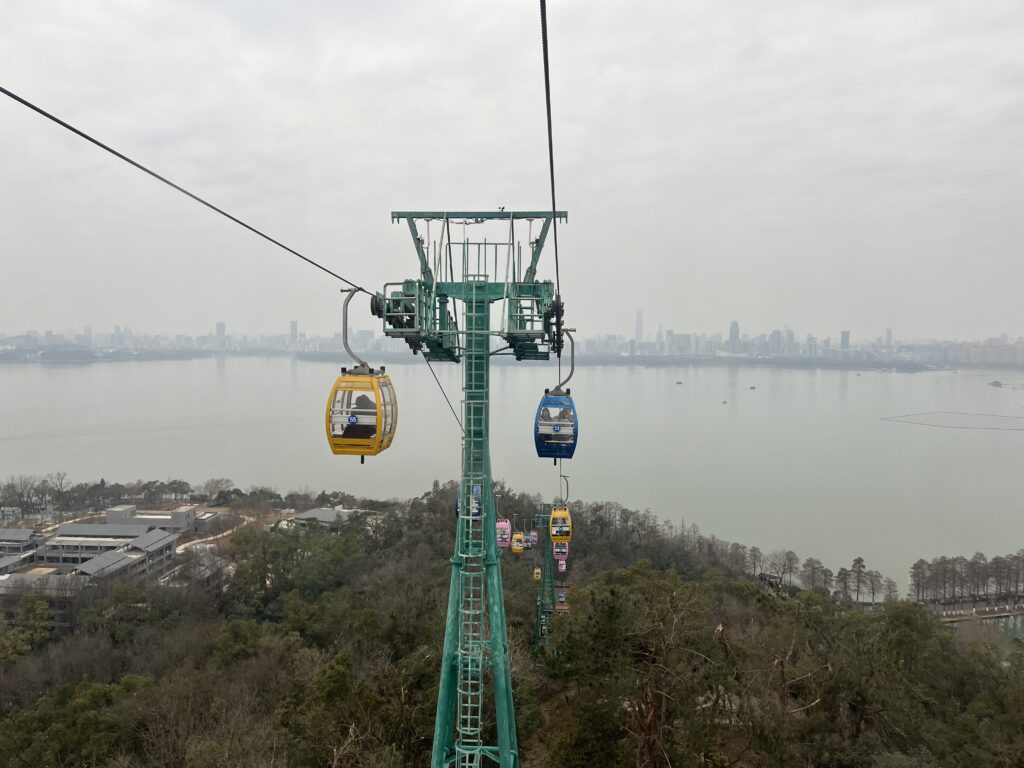
From our cable car vantage point, we were also able to see the East Lake Greenway, a cycling and pedestrian path that runs through the lake. As we learned from Professor Xie, the greenway was built as part of a larger city initiative to promote ecological restoration, clean water management, and human interaction with nature in an urban setting. We noticed many families enjoying the bike paths, play structures, and street food surrounding the lake, so this third goal of encouraging local tourism seemed to be achieved.

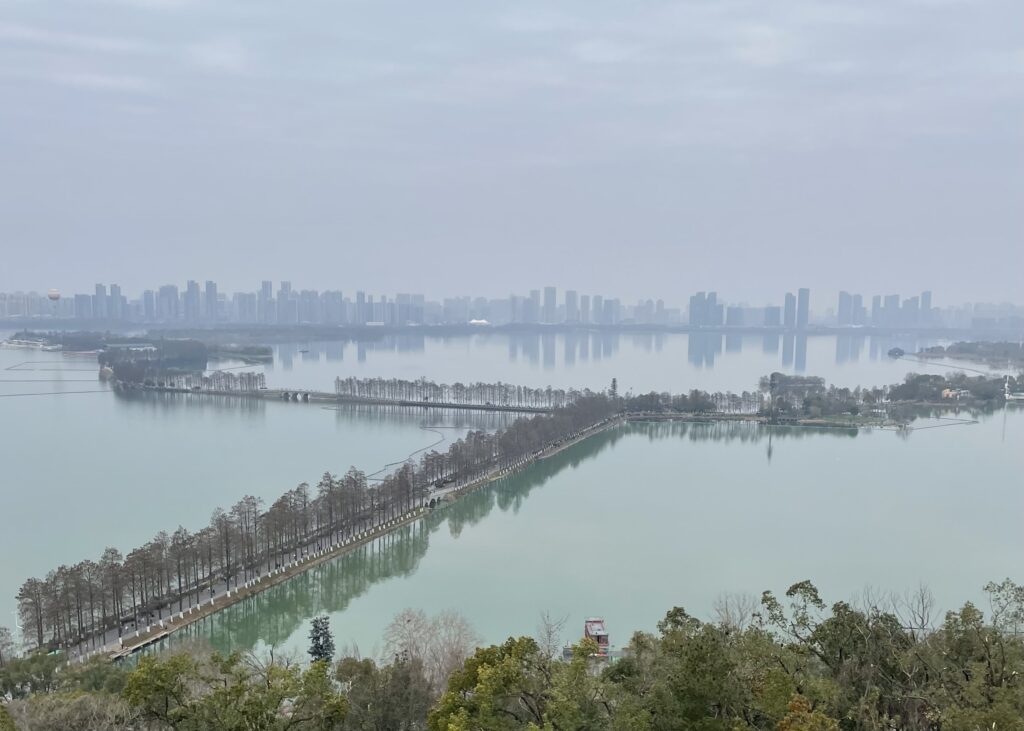
After cable cars, Demi (a local from Wuhan who truly led this adventurous afternoon!) helped arrange a few motorcycles to drive us all to the subway station. Riding motorcycles in China was a first for most of us and will definitely be one of the most memorable parts of the trip.
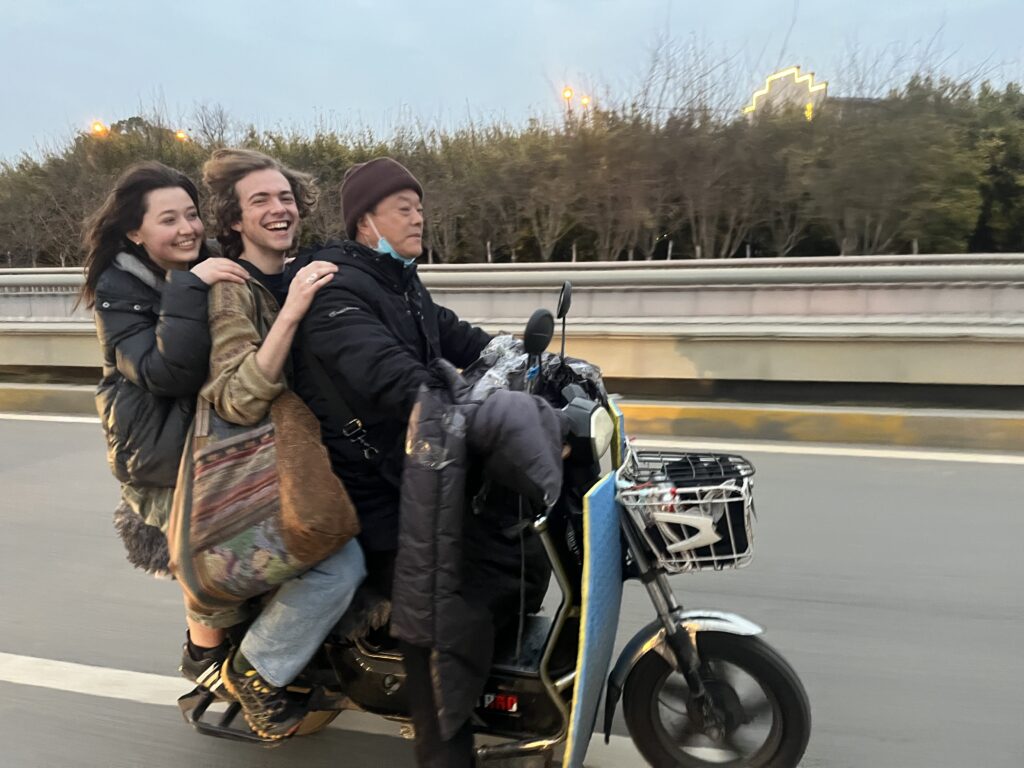
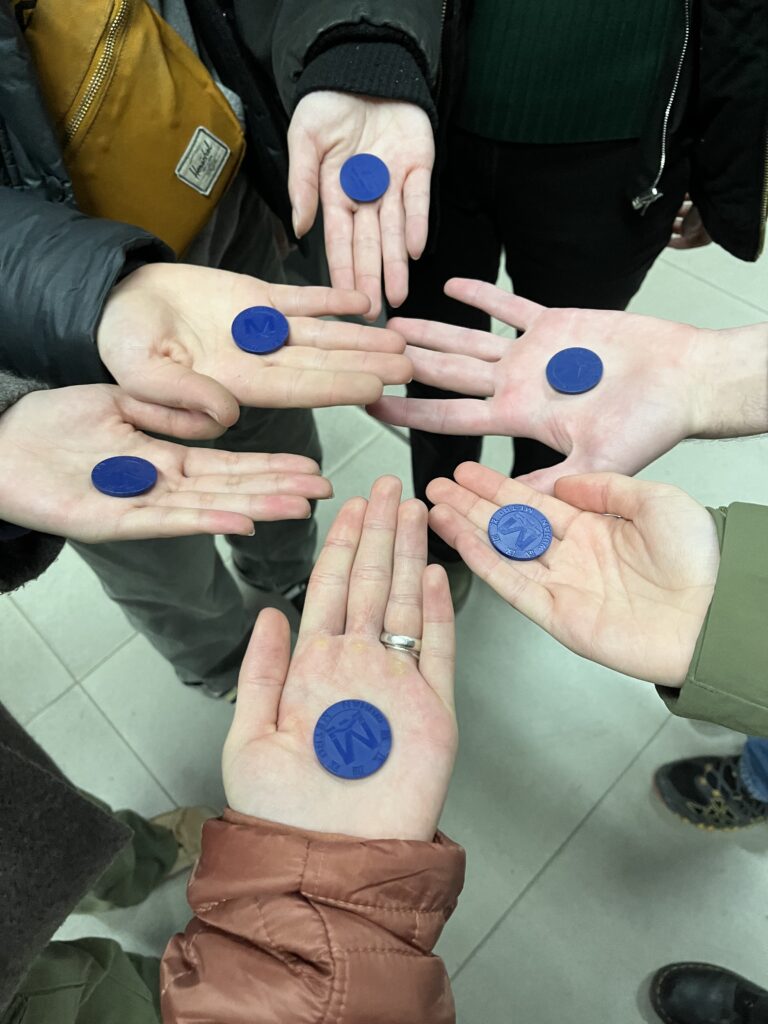
We then purchased our ride tokens and took the subway to Chu River Han street. We all got delicious tea along with an assortment of street food! We ate together and walked around for a bit until Vassar and CCNU students departed at the hotel. At that moment, we realized how much we had connected with our new friends. Despite different life experiences and occasional language barriers, we found many commonalities and moments of laughter. It was a very bittersweet goodbye, and an afternoon we will never forget.
